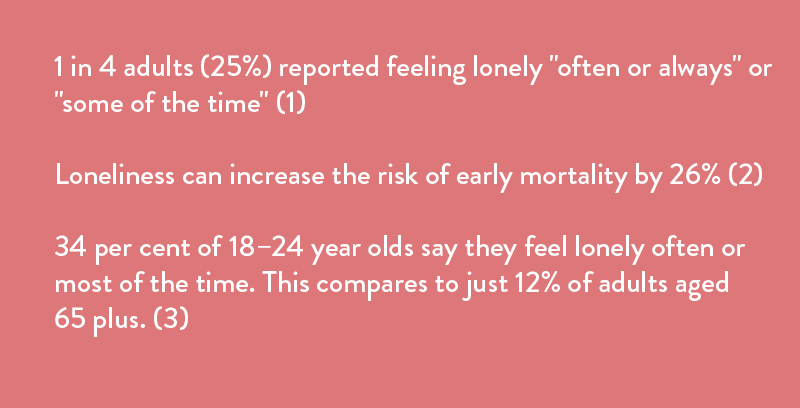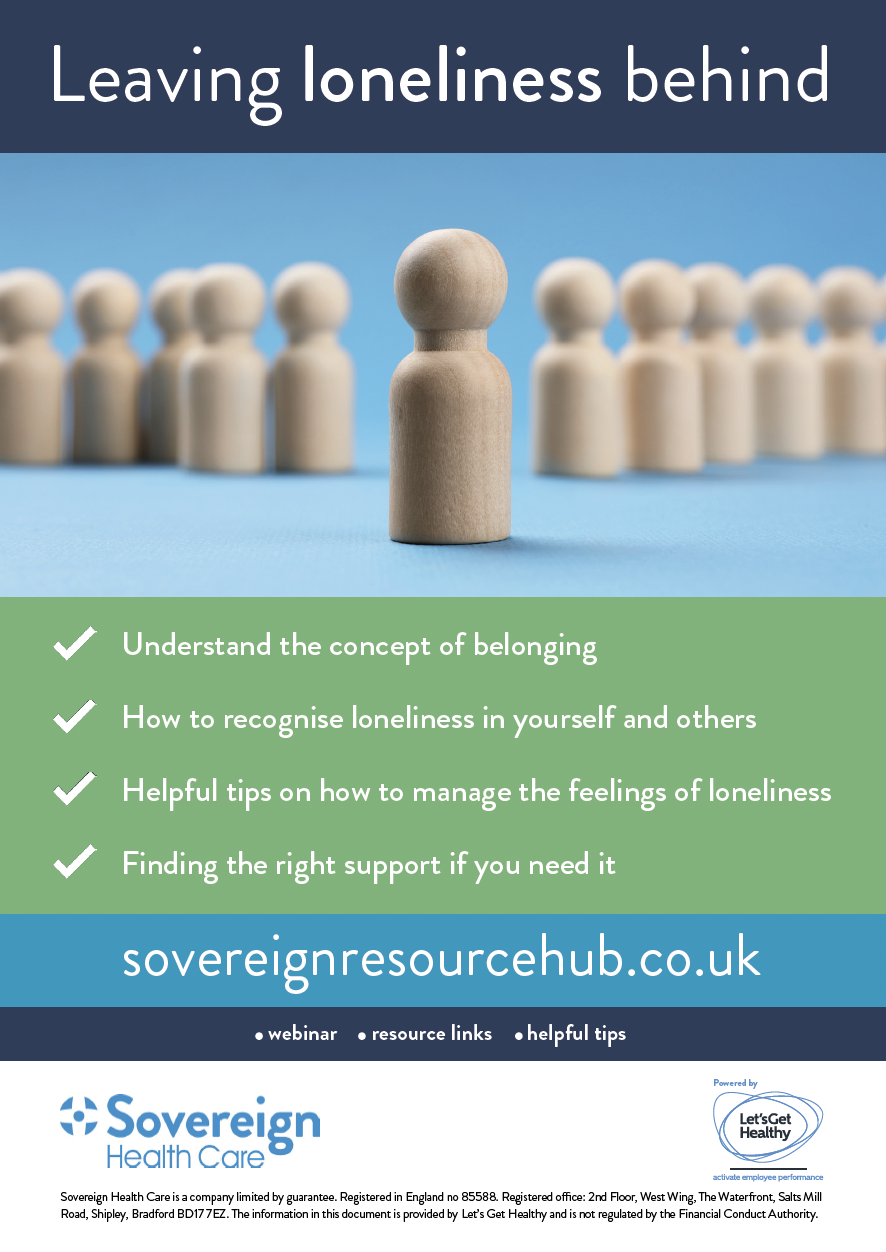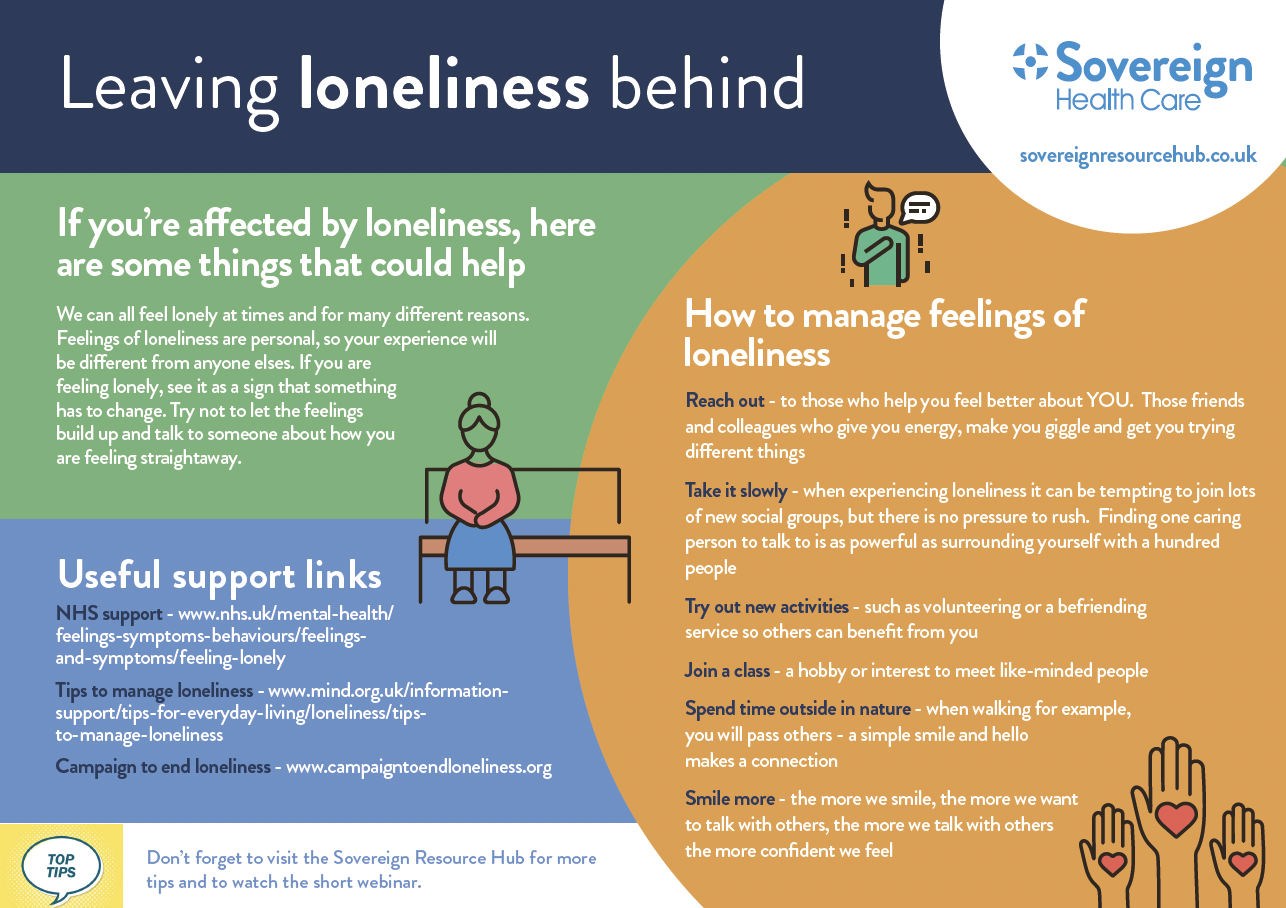Useful resources for employers
Watch the webinar
Top tips & links
Leaving loneliness behind
Loneliness can bring on unwelcome feelings of isolation, sadness, and disconnection, and in some cases lead to anxiety or depression. It can be brought on by an absence of meaningful connections, so how do we make sure we keep human interaction alive in our daily lives and help ourselves, family, friends and colleagues feel less isolated?
This topic explains the difference between being alone and feeling lonely, it helps you to understand what the causes, symptoms and effects of loneliness are and how to spot the signs of loneliness in yourself and others. There are links to helpful tips, external support and also a short webinar to help you understand a little more..
You can also download a factsheet and a poster to share the activities and resources with your colleagues.
Did you know?

Sources:
(1) ONS Public Opinions and Social Trends, Jan 2025; (2) Department for Digital, Culture, Media & Sport, Tackling loneliness evidence review: executive summary (2023); (3) The Centre for Social Justice May 2024
Webinar: Leaving loneliness behind
This short webinar will help you to understand:
- The difference between being alone and lonely
- Why humans crave belonging
- How social media can make feelings of loneliness worse
- The small steps you can take to help leave loneliness behind

Read on to learn how to recognise loneliness in yourself and others.

How to spot loneliness in yourself
There are many reasons you might feel lonely but the good news is there is lots of support for you. If you are starting to feel lonely, see it as a sign that something has to change, don’t let the feelings build up, talk to somebody straightaway such as a close friend, colleague, or your line manager. Here are some signs to watch out for:
- Feeling disconnected – You struggle to feel close to others, even in social settings
- Lack of meaningful interactions – Conversations feel shallow or unfulfilling
- Loss of interest – Hobbies and activities that once excited you no longer do
- Avoiding social situations –Withdrawing or making excuses to stay alone
- Craving connection but feeling stuck – You want to reach out but hesitate or fear rejection
- Increased negative self-talk – You feel unnoticed or believe you don’t belong
- Physical signs – Fatigue, trouble sleeping, or looking/feeling emotionally drained
- Reliance on distractions – Excessive screen time or other habits replace genuine interactions

How to spot loneliness in others
Try to ask colleagues, friends and family ‘Are you ok?’, then by really listening you can make a huge impact on their day. Even if they don’t open up at first, they will know that you care and will be there for them when the time is right. Respect confidentiality and encourage them to seek further support if needed. Also look out for the following:
- Avoiding social interactions – They decline invitations or isolate themselves more than usual
- Becoming quieter or withdrawn – Conversations are brief, and they seem distant or disengaged
- Loss of interest in hobbies – They stop taking part in activities and hobbies
- Changes in mood – They may express sadness, frustration, or seem more self-critical
- Seeking excessive attention – Some people overcompensate by trying to be noticed constantly
- Physical signs – They look tired, talk about having trouble sleeping, or looking downcast without an obvious reason
Podcasts
Do lonely brains see the world differently? BBC Radio 4 All in the Mind episode (2023)
Loneliness. Episode of the Let’s Talk: Mental Health podcast by the Mental Health Foundation (2022)
Loneliness Explored. Our podcast series on different aspects of loneliness (2021)
Additional support and resources
https://www.campaigntoendloneliness.org/
https://www.supportline.org.uk/problems/loneliness/
https://www.nhs.uk/every-mind-matters/lifes-challenges/loneliness/
https://www.gingerbread.org.uk/
https://www.anchor.org.uk/media/campaigns/chatty-benches
https://www.thesilverline.org.uk/helping-you/
https://www.borrowmydoggy.com/




